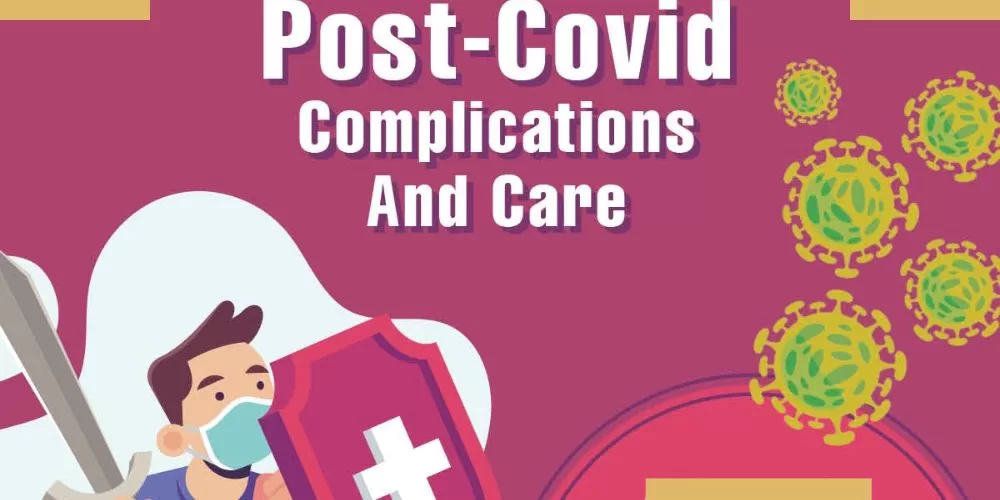Recovering from COVID-19 can be a challenging experience, and for many people, it’s just the beginning of a long road to full recovery. After the initial infection, some individuals may experience lingering health issues that require treatment and follow-up care. It’s essential to understand what to expect after COVID-19 and take steps to support your physical and mental health during recovery. In this article, we will explore common post-COVID-19 health issues and treatments, as well as helpful strategies for managing symptoms and promoting recovery.
Understanding COVID-19 Recovery
COVID-19 recovery can be a slow process, but it’s important to be patient and take care of yourself. Common symptoms of COVID-19 recovery include fatigue, shortness of breath, and coughing. Following up with your healthcare provider is important to monitor your recovery and address any lingering symptoms. Regular exercise and a balanced diet can help support your recovery and improve your overall health. It’s also important to prioritize rest and sleep to allow your body to regenerate and heal.
What Are After-COVID Health Issues?
After COVID-19, some people may experience a range of health issues, including:
- Fatigue
- Shortness of breath
- Coughing
- Joint and muscle pain
- Headaches
- Loss of taste or smell
- Chest pain or tightness
- Sleep difficulties
- Cognitive difficulties (brain fog)
- Depression and anxiety.
These symptoms can vary in severity and duration and may require follow-up care with healthcare providers.
Follow-Up Care: Why it’s Important
Follow-up care is crucial after COVID-19 treatment to monitor your recovery and address any lingering symptoms. It can help detect any potential complications early on and prevent long-term health issues. Regular check-ins with your healthcare provider can also provide peace of mind and support during the recovery process.
Physical Activity and COVID-19 Recovery
Physical activity can be beneficial for COVID-19 recovery, but it’s important to start slowly and listen to your body. Light exercise can help reduce inflammation, boost the immune system, and improve overall health. Gradually increasing activity levels can help improve strength and endurance over time.
Nutrition and COVID-19 Recovery
A balanced diet with plenty of fruits, vegetables, lean protein, and whole grains can support COVID-19 recovery. It can help provide essential nutrients for healing and support the immune system. It’s important to talk to a healthcare provider or registered dietitian for personalized nutrition recommendations based on individual needs.
The Importance of Rest and Sleep
Rest and sleep are crucial for COVID-19 recovery as they allow the body to regenerate and heal. Getting enough rest and sleep can also help reduce stress and support mental health. Creating a relaxing bedtime routine and avoiding caffeine or electronics before bed can help improve sleep quality.
Mental Health and COVID-19 Recovery
COVID-19 can be a traumatic experience, and it’s important to prioritize mental health during recovery. Common mental health issues after COVID-19 include anxiety and depression. Talking to a mental health professional and practicing self-care can help manage symptoms and support recovery.
Good Hygiene Practices After COVID-19
Good hygiene practices, such as washing hands regularly and wearing masks in public spaces, are still important after COVID-19 recovery. This can help prevent the spread of the virus to others and protect against new strains. It’s important to follow guidelines from public health officials and continue to prioritize hygiene even after recovery.
COVID-19 Vaccination after Recovery
Receiving the COVID-19 vaccine after recovery is still recommended, as it provides additional protection against the virus. It’s important to talk to a healthcare provider about the timing of vaccination after recovery. Studies have shown that vaccination after recovery can also provide a stronger immune response against COVID-19.
Patience and Self-Care During Recovery.
Recovery from COVID-19 can be a gradual process, and it’s important to be patient and kind to yourself. Practicing self-care, such as taking breaks when needed and engaging in relaxing activities, can help manage stress and support recovery. Remember to prioritize your physical and mental health during this time.
In conclusion, recovering from COVID-19 can be a slow process with a range of potential health issues that may require treatment and follow-up care. It’s important to prioritize physical and mental health during recovery, including regular exercise, a balanced diet, rest, and self-care practices. Good hygiene practices and COVID-19 vaccination after recovery are also important for preventing the spread of the virus and protecting against new strains. Remember to be patient, listen to your body, and seek support from healthcare providers or mental health professionals as needed. With time, many people can fully recover from COVID-19 and resume their normal activities.




